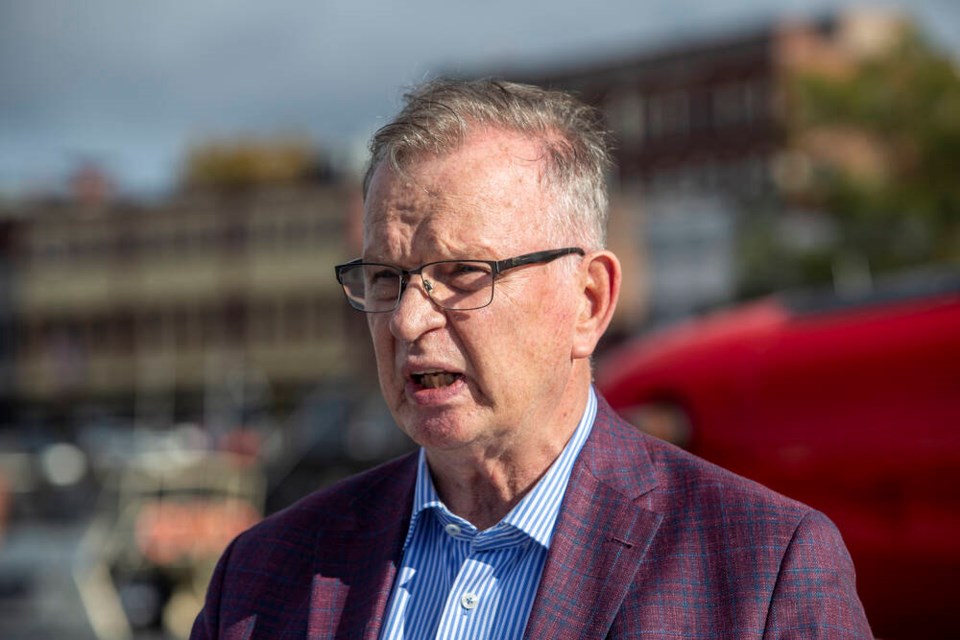More money and assistance — not finger-pointing — is needed to help communities to reduce their wildfire risk, says the presdient of the Union of B.C. Municipalities.
Jen Ford was responding to B.C. Forests Minister Bruce Ralston’s comments, made Wednesday, that blamed communities for slow progress on reducing wildfire risk in and around their communities.
“It’s not the time to … point fingers at local governments. Rather, say: ‘How can we help?’ ” said Ford, a Whistler councillor and chairwoman of the Squamish-Lillooet Regional District.
She said increased funding also needs to be long-term and secure, a perennial ask of the local government advocacy group.
And Ford added there are some small communities that simply don’t have the resources or capacity to apply for provincial wildfire resiliency programs or carry out and monitor the work. What they need is help from other levels of governments, she said.
Since 2019, 62 per cent of municipalities and 96 per cent of regional districts have applied for funding at least once. UBCM officials said 101 First Nations and 123 local governments had received funding to work on wildfire resiliency — and 687 applications have been made to provincial programs for such grants.
Asked Wednesday during a wildfire briefing about the slow pace of clearing wildfire fuel in communities where homes touch wilderness areas, a key recommendation in the province’s Firestorm report 20 years ago, Ralston had pointed to “well-developed” provincial funding programs to which municipalities and First Nations can apply to carry out the work.
“The funding is there. It simply … hasn’t been taken up. I think sometimes people think these are not essential programs, [that] these are make-work programs. They are the very opposite. They can be the difference between successfully extinguishing a fire and seeing a fire … do profound damage to a community,” Ralston said.
Ralston’s comments come as B.C. is experiencing another record-breaking, deadly wildfire season. Hundreds of properties have been destroyed by fire, tens of thousands of people have had to flee and smoke has blanketed large swaths of the province.
Ford said Ralston later called her to say that he had been taken out of context in Postmedia News’s reporting of his comments, and it wasn’t his intention to criticize local governments. Ford said he told her he meant that some communities were doing good work and there is funding available.
On Thursday, Ralston declined an interview about his comments with Postmedia.
Ralston made similar comments on Thursday on X (formerly Twitter), as he had to Ford. “I will be redoubling my efforts to make sure local communities are aware of how to access the wildfire risk reduction program funding and make sure the right resources are in place to support this critical work,” he said.
Ford, like Ralston, said she expected the topic of how to build more wildfire protection for communities will be a major topic at the UBCM’s annual convention in September.
West Kelowna, which has been devastated by wildfires this year, has submitted a resolution to the convention that calls for a “significant” increase to prevention spending, and for funding to be distributed automatically instead of requiring annual grant applications. The resolution notes the province spends exponentially more money on fighting fires than on prevention.
The work to reduce wildfire risk, called fuel treatment, is expensive. It includes thinning timber, cutting underbrush and the lower limbs of trees, and removing woody debris from the forest floor. It’s designed to keep fire on the ground, away from the upper reaches of the tree canopy where it can spread rapidly and burn more intensely.
Experts have also said there isn’t enough funding to make substantive progress on building wildfire resiliency.
On Thursday, Robert Gray, a longtime wildfire ecologist in B.C., called Ralston’s comments “completely false.”
Gray, who contributed to the Firestorm 2003 report, said he works with a number of municipalities, and they apply every dime they can get their hands on to increasing wildfire resiliency.
“The problems is there is not enough money. It’s basically wrapped up in bureaucracy,” he said.
— With files from Katie DeRosa



